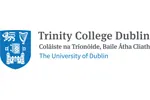About History, BA (Hons) - at Trinity College Dublin
History can be studied either as a single subject, in combination with one other subject as part of a joint honors two-subject moderatorship (TSM) programme, or as part of a special joint honors programme combining history and political science.
When studied as one subject of a two-subject moderatorship, both are studied for three years and one subject only is studied in the fourth year, except where history is combined with geography.
OverviewAll history students follow the same courses. However, while TSM and history and political science students cover all the principal areas of history, the workload is less intense than that of the single honor programme.
Is this the right course for me?All history courses at Trinity are designed to allow you to shape the overall character of your studies. As a programme, it is particularly suitable if you want a broad-based course that allows you to touch on a wide variety of areas before specialising.
Course contentThe purpose of the history programme is two-fold. It is designed to ensure that you acquire a systematic knowledge of European and Irish history, and also to introduce you to particular aspects of history along socio-political, cultural and economic lines. The Junior Freshman year is under the supervision of the Department of Medieval History, while the Department of Modern History takes over your course of studies thereafter.
The Freshman yearsThe Junior Freshman (first) year courses are outlined below. Single honor students take all four courses Students in the joint honor programme take History of Europe 1000-1250 as their core course, and choose one additional course from the remaining three History and Political Science students choose any two of the four courses:
- History of Europe 1000-1250
This course, which covers European history in the central middle ages, deals particularly with the internal history of France, Germany, Italy and Byzantium. The emphasis is on political and institutional developments, ecclesiastical history, history of political thought, intellectual history and the development of schools, the religious orders and religious dissent. The history of papacy is also considered in great detail.
- History of Britain 1000-1485
This course covers most of the major historical developments in Britain from the end of the Anglo-Saxon kingdom until the accession of the Tudors in 1485. While the emphasis is on a chronological analysis of political events within the period, many important socio-economic questions are also covered.
- History of Ireland 1014-1534
Topics and trends rather than a narrative of events are emphasised on this course. Particular attention is given to the development of Gaelic Ireland, patterns of settlement, the economy, the church and religion, politics and the constitution, Anglo-Irish relations, war and civil disturbance, and government and society.
- History of Europe 1500-1700
This course seeks to highlight political, social and cultural developments across the whole of Europe by selecting specific common features and studying variants of these in certain countries. Reform of state and society, the first and second reformations (Protestant and Catholic), the changing patterns of early modern risings, and revolts and civil wars play a leading role in the subject matters covered.
As a Senior Freshman (second year student) you will be introduced to courses in political thought, sociology, and the Irish economy.
The Sophister yearsThree subject areas are studied in detail in the Junior Sophister (third) year. One of these combines a short lecture course on historiography with a selected option from a range of courses on historiographical questions from various periods and areas. In the Senior Sophister (fourth) year students select two taught courses and prepare a dissertation.
The choice of subjects available in the Sophister years (three and four) include:
- Early Irish (Brehon) law
- The age of Dante and Petrarch
- France and the first world war, 1912-1920
- The renaissance in Italy
- Elizabethan Ireland
- Introduction to medieval archaeology
- History and heritage
- Contemporary political theories
Assessment structureThis is primarily essay and exam-based, although a final year dissertation is also required.


